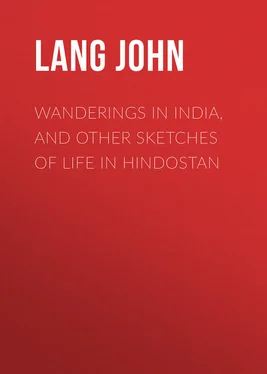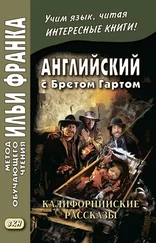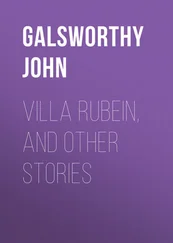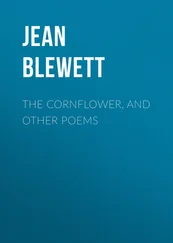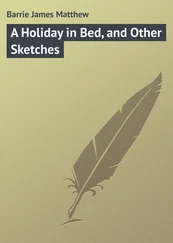John Lang - Wanderings in India, and Other Sketches of Life in Hindostan
Здесь есть возможность читать онлайн «John Lang - Wanderings in India, and Other Sketches of Life in Hindostan» — ознакомительный отрывок электронной книги совершенно бесплатно, а после прочтения отрывка купить полную версию. В некоторых случаях можно слушать аудио, скачать через торрент в формате fb2 и присутствует краткое содержание. Жанр: literature_19, foreign_antique, foreign_prose, Путешествия и география, на английском языке. Описание произведения, (предисловие) а так же отзывы посетителей доступны на портале библиотеки ЛибКат.
- Название:Wanderings in India, and Other Sketches of Life in Hindostan
- Автор:
- Жанр:
- Год:неизвестен
- ISBN:нет данных
- Рейтинг книги:3 / 5. Голосов: 1
-
Избранное:Добавить в избранное
- Отзывы:
-
Ваша оценка:
- 60
- 1
- 2
- 3
- 4
- 5
Wanderings in India, and Other Sketches of Life in Hindostan: краткое содержание, описание и аннотация
Предлагаем к чтению аннотацию, описание, краткое содержание или предисловие (зависит от того, что написал сам автор книги «Wanderings in India, and Other Sketches of Life in Hindostan»). Если вы не нашли необходимую информацию о книге — напишите в комментариях, мы постараемся отыскать её.
Wanderings in India, and Other Sketches of Life in Hindostan — читать онлайн ознакомительный отрывок
Ниже представлен текст книги, разбитый по страницам. Система сохранения места последней прочитанной страницы, позволяет с удобством читать онлайн бесплатно книгу «Wanderings in India, and Other Sketches of Life in Hindostan», без необходимости каждый раз заново искать на чём Вы остановились. Поставьте закладку, и сможете в любой момент перейти на страницу, на которой закончили чтение.
Интервал:
Закладка:
"The next time you are intoxicated on the parade ground, or the next time you use bad language in the mess-room, or the next time you publicly insult a brother officer, provoking him to quarrel with you, you will forfeit your commission." Being the son of an earl, he was entitled – many colonels think – to every possible chance of redemption. Had he been the son of a commoner, he would, most probably, have been court-martialled and cashiered for the very first offence.
"Thank you, sir," replied the ensign, with a low bow; "I will be more cautious in future."
He kept his word. From this time he did his duty extremely well; and, to all outward appearance, was a reformed character. The officers observing this, generously made advances with a view to resuming their former relations with him. But the Honourable Francis repulsed their advances. The whole regiment had thought proper to cut him; and he now thought proper to cut the whole regiment.
Several months passed, and during that period the ensign applied himself to Hindostanee and Persian. He encouraged the natives to come to his bungalow, to talk with him, and by night and by day pursued his studies. The result was, that he soon conversed with perfect ease and accuracy. He now began to live like a native – a Mahommedan; and, except when he had to attend to his regimental duties, he wore the native costume, and abstained from drink entirely. With truth, he might have said with Conrad, —
The grape's gay juice my bosom never cheers;
I'm more than Moslem when the cup appears.
His food was rice, milk, vegetables, and fruit; the bed upon which he slept was hard and mean; such as the natives use. The whole of his European furniture he sold by auction.
His desire – the desire of a doubtfully reformed reprobate – to convert to Christianity a young Mahommedan girl, astonished all those who became acquainted with this desire. The girl was the daughter of a water-carrier (Bheestie). She was not like the natives of India, but more like those of Africa. She was coal black, and had thick lips and wavy hair. She was short for her age – fourteen years – but thickset, with powerful limbs. The girl's father told the servants belonging to other officers of the regiment, and the curious whim of Gay's became a topic of conversation.
Jehan, the bheestie's daughter, was a virtuous girl, and Francis Gay had never approached her with a view to undermining her virtue. It was no easy matter to persuade her to change her religion; but, strange to say, he at length succeeded, and Noor Jehan was baptized as Ellen by a missionary who journeyed to Chinsurah for the purpose of performing the ceremony. The sanity or otherwise of the ensign was now very generally discussed in the regiment, and the prevalent opinion was that he was a lunatic. But the good colonel was a little angry at the surmise. "Surely," he said, "you do not accuse a man of being a maniac because he has converted an infidel."
The regiment was ordered to march to Cawnpore, whither Ellen and her father also proceeded. Cawnpore was then the chief station in the upper provinces of India. Five thousand troops were quartered there. A regiment of dragoons, a regiment of native cavalry, a regiment of British infantry, and two of native infantry. Besides horse and foot there were companies of artillery, and sappers and miners.
Very shortly after the regiment was settled in Cawnpore, the Honourable Francis Gay paid a visit to the chaplain, and intimated a desire to be married. The chaplain of course replied that he should be most happy, and there and then a day and hour was appointed for the performance of the rite; but, when the reverend gentleman came to hear who was to be the Honourable Ensign's bride – the black daughter of a native water-carrier – he could not help remarking:
"I am sorry, Mr. Gay, that I cannot with sincerity offer you my congratulations."
To which the ensign responded:
"My good sir, I did not ask them." And retired with a bow.
The chaplain drove to the house of Colonel Role, and told him of the interview which had just taken place between himself and Ensign the Honourable Francis Gay. The colonel called upon the young man, and entreated him to reflect. "I have reflected, sir," was the ensign's reply. The colonel then went to the general, and the general sent for Mr. Gay to attend at his bungalow. Mr. Gay obeyed the summons, and listened with attention and much calmness to a long and violent speech. When it was ended, however, Mr. Gay, with extreme courtesy, and in the quietest of tones, spoke thus:
"General, you had a right to command my attendance here upon any military matter, but not upon any civil matter. However, I waive that, because I believe your intention to be a good one. You, general, have arrived at the years of discretion – perhaps at something beyond those years. You have, at all events, arrived at a time of life when the tumultuous passion of youth can no longer be pleaded in extenuation of certain follies. Now tell me, general, which of us, think you, sins the most, and sets the worst example to the men, European and native, in this station? – I, who wish to marry this good Christian girl; or you, who have in your house – " Mr. Gay then made mention of two very discreditable members of the general's establishment. "This is a question which I shall put to the commander-in-chief, if you abide by your threat to report me to his excellency."
That night the general and Colonel Role held a consultation. The colonel still doubted the ensign's insanity. It had become a fixed idea in the regiment that Gay was insane. The general caught at this, and a committee of doctors was appointed to examine the ensign. They reported that Ensign the Honourable Francis Gay was not only of sound mind, but one of the most intellectual young men in the station; and that he had explained to their entire satisfaction certain conversations which he had frequently held with himself in Chinsurah, at the mess-table.
The wedding-day had been put off in consequence of these proceedings; but the parties now met in the church, which was crowded with officers, including nearly the entire medical staff, who were curious to witness the spectacle. There stood the tall and handsome English aristocrat, and beside him his coal-black bride, dressed in garments of red silk, trimmed with yellow and gold tinsel. The ensign acted as the interpreter, and explained to Ellen in Hindoostanee the vows she was required to take. This made the ceremony a very long one. When it was concluded, the bride got into her palanquin and was carried home. The bridegroom mounted his pony, and rode by her side.
Ellen – now the Honourable Mrs. Gay – was a girl of great natural ability, of an excellent disposition, and was blessed with an excellent temper. She had, moreover, a very sweet voice. After her marriage she was never seen by any European in Cawnpore, except her husband. It was believed that the ensign saved more than two-thirds of his pay, which Ellen, who had an excellent idea of business, used to lend out in small sums to people in the bazaar at the rate of fifty per cent. per mensem. If she lent a rupee (two shillings), she would get back at the end of the month a rupee and eight annas (three shillings) by way of interest.
A year passed away, and a son and heir was born to the Honourable Francis Gay. The child had light blue eyes, exactly like those of his father; but his complexion was quite as black as his mother's. When the child was three months old, it was brought to the church, and publicly christened, Mr. Gay and the pay-sergeant of the company he belonged to being the godfathers, and Ellen the godmother. The names given to the infant were Ernest Augustus George Francis Frederick – such being the names respectively of Lord Millflower's sons. Ernest was the eldest, Augustus the second, George the third, Francis the fourth, and Frederick the fifth and youngest. Not long after the birth of his son, Ensign Gay obtained his promotion to the rank of lieutenant, and received, of course, an increase of pay.
Читать дальшеИнтервал:
Закладка:
Похожие книги на «Wanderings in India, and Other Sketches of Life in Hindostan»
Представляем Вашему вниманию похожие книги на «Wanderings in India, and Other Sketches of Life in Hindostan» списком для выбора. Мы отобрали схожую по названию и смыслу литературу в надежде предоставить читателям больше вариантов отыскать новые, интересные, ещё непрочитанные произведения.
Обсуждение, отзывы о книге «Wanderings in India, and Other Sketches of Life in Hindostan» и просто собственные мнения читателей. Оставьте ваши комментарии, напишите, что Вы думаете о произведении, его смысле или главных героях. Укажите что конкретно понравилось, а что нет, и почему Вы так считаете.
